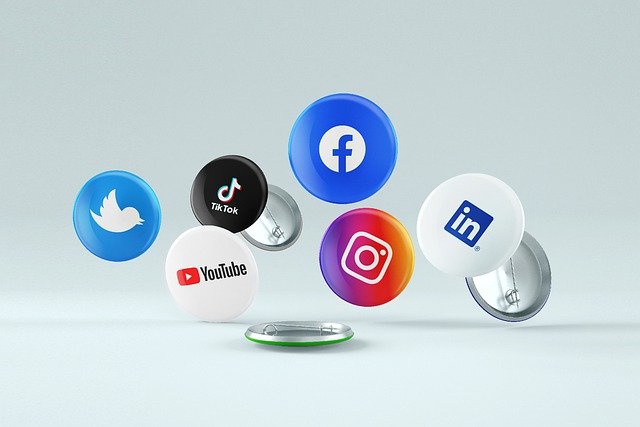نویسنده: AliBina
-

Ancora terribili preposizioni (Terrible prepositions again) – Cyber Italian Blog

In questa attività rivediamo le preposizioni articolate (preposizioni semplici combinate con l’articolo determinativo). Ma perché gli italiani usano gli articoli?
Perché gli italiani amano gli articoli.
Gli italiani non vanno semplicemente fuori a mangiare ”pizza”. Vanno fuori a mangiare ”LA pizza”. È sempre ”pizza” ma l’articolo include tutto ciò che la pizza rappresenta: i pomodori maturi cresciuti sotto il sole caldo, il contadino che ha piantato e raccolto il grano, il pizzaiolo che prepara l’impasto e lo cuoce nel forno a legna…
Tu ami gli articoli? O ami solo la pizza?In this activity we review prepositions combined with definite articles. But why do Italians need to use articles? Because Italians love articles.
Italians do not just go out and eat ‘pizza’. They go out and eat ‘LA pizza’ (THE pizza). It is still ‘pizza’ but the article includes everything that pizza represents: the ripe tomatoes grown under the warm sun, the farmer who planted and harvested the wheat, ‘il pizzaiolo’, the man who actually prepares the dough and then cooks it in the wood oven…
Do you love articles? Or do you just love pizza?To practice Italian this week we invite you to read and test…
PRACTICE HERE: Italian/English Version
-

Core Words: How to Say “Cup,” “Coffee Mug,” and More!
Hi everybody, my name is Thomas. Welcome to the 2000 Core Dutch Words and Phrases video series! Each lesson will help you learn new words, practice, and review what you’ve learned. Ok! Let’s get started! First is… WORD 1 (NORMAL SPEED) tonijn (NORMAL SPEED) “tuna” (NORMAL SPEED) tonijn (SLOW) tonijn (NORMAL SPEED) “tuna” (NORMAL SPEED) tonijnsalade (NORMAL SPEED) “tuna salad” (SLOW) tonijnsalade WORD 2 (NORMAL SPEED) pollepel (NORMAL SPEED) “ladle” (NORMAL SPEED) pollepel (SLOW) pollepel (NORMAL SPEED) “ladle” (NORMAL SPEED) Een pollepel is nodig om vruchtenpunch te serveren uit de schaal. (NORMAL SPEED) “A ladle is needed to serve fruit punch from the bowl.” (SLOW) Een pollepel is nodig om vruchtenpunch te serveren uit de schaal. WORD 3 (NORMAL SPEED) tandenstoker (NORMAL SPEED) “toothpick” (NORMAL SPEED) tandenstoker (SLOW) tandenstoker (NORMAL SPEED) “toothpick” (NORMAL SPEED) Je kunt testen of een taart klaar is met bakken door een tandenstoker te gebruiken. (NORMAL SPEED) “You can test to see if a cake is done baking using a toothpick.” (SLOW) Je kunt testen of een taart klaar is met bakken door een tandenstoker te gebruiken. WORD 4 (NORMAL SPEED) schotel (NORMAL SPEED) “dish” (NORMAL SPEED) schotel (SLOW) schotel (NORMAL SPEED) “dish” (NORMAL SPEED) lichtblauwe schotel (NORMAL SPEED) “light-blue dish” (SLOW) lichtblauwe schotel WORD 5 (NORMAL SPEED) kop (NORMAL SPEED) “cup” (NORMAL SPEED) kop (SLOW) kop (NORMAL SPEED) “cup” (NORMAL SPEED) een kop hete cacao (NORMAL SPEED) “cup of hot cocoa” (SLOW) een kop hete cacao WORD 6 (NORMAL SPEED) drinkglas (NORMAL SPEED) “drinking glass” (NORMAL SPEED) drinkglas (SLOW) drinkglas (NORMAL SPEED) “drinking glass” (NORMAL SPEED) Het drinkglas is vol met water. (NORMAL SPEED) “The drinking glass is full of water.” (SLOW) Het drinkglas is vol met water. WORD 7 (NORMAL SPEED) koffiemok (NORMAL SPEED) “coffee mug” (NORMAL SPEED) koffiemok (SLOW) koffiemok (NORMAL SPEED) “coffee mug” (NORMAL SPEED) Drinken blijft langer warm in een goede koffiemok. (NORMAL SPEED) “Drinks stay hot longer in a good coffee mug.” (SLOW) Drinken blijft langer warm in een goede koffiemok. WORD 8 (NORMAL SPEED) theekop (NORMAL SPEED) “teacup” (NORMAL SPEED) theekop (SLOW) theekop (NORMAL SPEED) “teacup” (NORMAL SPEED) theekop en schotel (NORMAL SPEED) “teacup and saucer” (SLOW) theekop en schotel WORD 9 (NORMAL SPEED) kan (NORMAL SPEED) “pitcher” (NORMAL SPEED) kan (SLOW) kan (NORMAL SPEED) “pitcher” (NORMAL SPEED) In de zomer heb ik op mijn tafel altijd een kan ijsthee. (NORMAL SPEED) “In the summer a pitcher of iced tea is always on my table.” (SLOW) In de zomer heb ik op mijn tafel altijd een kan ijsthee. WORD 10 (NORMAL SPEED) theepot (NORMAL SPEED) “teapot” (NORMAL SPEED) theepot (SLOW) theepot (NORMAL SPEED) “teapot” (NORMAL SPEED) groene keramische theepot (NORMAL SPEED) “green ceramic teapot” (SLOW) groene keramische theepot PRACTICE/REVIEW Let’s review. Respond to the prompts by speaking aloud. First, you will hear a word or phrase in English. Respond in Dutch, then repeat after me, focusing on pronunciation. Ready? (Do you remember how to say “tuna?” Review 1) (3) (2) (1) tonijn (1) tonijn (And how to say “ladle?” Review 2) (3) (2) (1) pollepel (1) pollepel (What about “toothpick?” Review 3) (3) (2) (1) tandenstoker (1) tandenstoker (Do you remember how to say “dish?” Review 4) (3) (2) (1) schotel (1) schotel (Let’s try “cup!” Review 5) (3) (2) (1) kop (1) kop (What about “drinking glass?” Review 6) (3) (2) (1) drinkglas (1) drinkglas (Now, let’s see if you remember how to say “coffee mug!” Review 7) (3) (2) (1) koffiemok (1) koffiemok (Another one! What about “teacup?” Review 8) (3) (2) (1) theekop (1) theekop (Do you remember how to say “pitcher?” Review 9) (3) (2) (1) kan (1) kan (And finally, do you remember how to say “teapot?” Review 10) (3) (2) (1) theepot (1) theepot Well done! See you next time! Tot ziens. -

Core Words Lesson #23 — Quiz Review
Unlock In-Depth Explanations & Exclusive Takeaways with Printable Lesson Notes
Unlock Lesson Notes and Transcripts for every single lesson. Sign Up for a Free Lifetime Account and Get 7 Days of Premium Access.
-

Saluti (Greetings) – Cyber Italian Blog

Il saluto è un momento importante nell’incontro fra le persone.
Molti stranieri conoscono la parola “ciao”, che in italiano si usa sia incontrando che lasciando gli amici.
Quante altre parole italiane di saluto conosci?Greetings are an important moment in the meeting among people.
Many foreigners know the word “ciao” (hello, goodbye), which in Italian is used both when meeting and leaving friends.
How many other Italian words of greetings do you know?To practice Italian we invite you to listen and test…
PRACTICE HERE: Italian/English Version
-

Talking About Your Occupation – Part 2
Do you remember how to say “barista”? barista barista Do you remember how to say “I”? ben ben What about “I’m a barista”? Ben baristayim. Ben baristayim. Do you remember how to say “student”? öğrenci öğrenci What about “I am not a student”? Öğrenci değilim. Öğrenci değilim. What about “no”? hayir hayir Do you remember how to say “No, I’m not a student. I’m a barista”? Hayır, öğrenci değilim. Ben baristayim. Hayır, öğrenci değilim. Ben baristayim. Do you remember how to say “nurse”? hemşire hemşire What about “investor”? yatırımcı yatırımcı What about “lawyer”? avukat avukat Do you remember how to say “accountant”? muhasebeci muhasebeci What about “Police Officer”? polis memuru polis memuru What about “researcher”? araştırmacı araştırmacı Do you remember how to say “teacher”? Öğretmen. Öğretmen. What about “doctor”? doktor doktor -

Why so serious? The word ‘sério’ in Portuguese
Fala, pessoal! Tudo bem? Sério mesmo? Learning about collocations and idioms is the best way to achieve fluency and communicating in a natural way in a foreign language. And using the word sério (serious) properly can certainly help. Today’s post will round up some examples of how to use the term and their meanings. And if you want to dig deeper into the topic of expressions in Portuguese, check out these related posts here, here or here. So it’s time to get serious!

Por que você está tão sério? (Image by Ольга Бережна from Pixabay )
First of all, sério means the same as in English, as in something bad, severe or as a person who is quiet and not into jokes:
Remember that “sério” as an adjective should therefore be modified according to gender and number:

Você está falando sério? (Photo by Andrea Piacquadio from Pexels)
You can even go a little further and try sério mesmo, which is a little more emphatic but also a bit informal and can be translated as for real:
É sério que já acabou? But don’t worry, there is more to come next week! Tenham uma ótima semana.
-

March 2025 Inner Circle: The Power of a Language Coach
Welcome to Inner Circle. I’m Kyejin and I’m joined by my co-host, the founder of Innovative Language, Peter Galante. Hi everyone, Peter here. Welcome. So what did we talk about last time? Last time we spoke about learning with routines. Right. How about this time? Or actually create language. Yes, that’s right. This time we’re talking about learning with a coach. We talked about coach last time a little bit, and this week, I mean this month, we are going to talk more about coaching and a coach. That’s right. Okay. So shall we talk about the coaching a little bit? Because well, some people might not remember what it is exactly. Is it coaching different from a teacher? Yes. Maybe we should start with a definition. Yes, I agree. So teacher is someone who helps you learn the language. So they focus on grammar, vocabulary, the language itself. Yeah. Then coaching, there’s a few aspects, but maybe there’s three that we can talk about. Okay. One is learning tactics. So someone might get to know you and then figure out a way to help you learn faster. Okay. So they help you build a good learning strategy. Yes. Perfect. Learning strategy. So second one is motivation. And when it comes to motivation, that’s helping you find why you want to study and keeping you engaged. I see. So yeah, I agree. Actually, when it comes to language learning, motivation is a key, in my opinion, very often, at least to me. That’s it. Yeah. Everybody has kind of what they feel. And I think motivation is very powerful. Yeah. How about the third one? The third one kind of falls into motivation, but I think it’s slightly different and actually more important these days now that we have AI. So the third one, or many online courses and so much material is readily accessible. So the third one is accountability. Ah, I see. So because there is a coach then you feel more responsible for your language learning progress because you have to share with that. So you feel, yeah, comfortable more. Yeah. So depending, a great coach can do all three. But, you know, great coaches are sometimes quite hard to find. I see. And so for Kyejin, for you, which do you think of the three? So we kind of, I think we said learning strategies for kind of focusing on knowledge. So if you have a coach that’s going to teach you a skill, so skill based coach, motivational coach or accountability coach, Which do you prefer? Which do you think is the most valuable? To me, second and third. Yes. Yeah. If I mean, we are motivated when we start learning a language. But as time goes by, maybe we reach some goals that we want to achieve. For example, it can be the test or maybe I want to visit the country. So I’m learning. But after visiting, like I lost the motivation. I need motivation. I mean, I can have motivation at the beginning, but it’s very difficult to keep the motivation for like three years, four years, five years, ten years. So I would like to get help with that. And the other one, too, the accountability. Yeah. If someone checks in, then naturally I feel pressure. I mean, good kind of pressure. And I feel, oh, I have to do it. I should not postpone. And when I feel tired or when I feel lazy, I sometimes skip it. But because there is someone, I feel like, oh, I want to do it. I want to show my progress to that person. How about you? I agree with a lot of what you said, particularly right now. You know, when I went to school in the 80s, I think the teacher had. Covered a lot of these, you know, primarily, one could argue that schools are the ultimate form of accountability. You have to show up, they take your attendance. If you don’t come enough, then you cannot go on. So it’s like you have accountability to at least show up. Then you’re supposed to try. So, but often you had to go there to learn. Yes. So it was kind of hard to. It was knd of subtle differences. You went to school to learn, you had to show up. The coach, the teacher was checking your homework, holding you accountable as you progressed throughout the year, right? Mm hmm. Yes. But now in 2025, I firmly believe if you need to learn a subject and you’re highly motivated, you make a very big difference in 48 hours, like one weekend. True, true. But where’s that motivation, right? So if you’re in a job interview on Friday, I know someone who did this, they had a job interview on a Friday, and they’re in the interview, someone said, do you know this coding language? And the guy said, yeah, of course I know this coding language. Okay, well, you know, Monday, we’re going to test you on it. Can’t wait. What do you think he did for the weekend? Wow, he studied with AI and YouTube materials online, and he could answer all the questions, I guess. Yeah, no AI at that time, but yes, that’s the premise, that he went. So now we’re in an age where you really… What is the true benefit of school? That’s a topic for a different day, but, you know, if they bring 20 or 30 or 40 kids into a room and everyone’s driving at the same speed, picture a road, and you have all the cars with the car in front saying, 20 miles an hour. Some people are like, oh, this is a little fast for me. Some people are like, this is too slow for me. Some people are sleeping. Some people are like, it’s like, it’s chaos, right? Yeah, yeah, right. But if you want to progress on your own, there are sites like ours where the paths are laid out. Now comes the difficult part for humans, human nature. How do we stay on the course at set intervals? So for me, accountability is kind of the most important. And that’s what I focus on with my coach, because if you’re putting in the hours, the progress should come. The tools are there now that you can progress very rapidly. I see. So that’s why the coaching is important. And you are using a coach. You have a coach now. And we will have a coach. Yes, actually, I got an email from her, and I shared some information about me, like my learning style, et cetera. So yes. OK, so I have a question. So about your coach and how you’ve been using a coach. So how are you learning with a coach? I mean, how do you use the coach and how often do you talk to her? That’s a good question. So let’s go back to now this topic of AI. So AI has come quite a long way. And with AI, you can have something similar. You get a notification every day. Hey, it’s time to study. Hey, it’s time to study. You can schedule some things, too. So then that begs the question. What’s the difference between a human coach and an AI coach? Would you like to guess? If it’s AI, I will feel like, oh, I can sometimes ignore it because it doesn’t have feeling. If it’s a human, it’s a human. So I don’t want to disappoint someone as a one on one relationship. How about you? Does it apply to you, too? I understand the premise, but I’m kind of extrapolating out two years. And I’m pretty sure that the AI will have human feelings. So I think the AI will continue to get better and better. So it’s not the humanity so much, but the AI seems or not AI, but even just the computer notifying you at midnight, hey, do your work or hey, you didn’t hand it in, is very systematic. So the message comes at six, and it’s like you can train yourself to ignore it. Yeah, it’s like around six, well, the message is here as usual. I’m sleepy. Yeah. So my coach has been instructed to say, hey, listen, I’m waiting. I like being persistent if I don’t follow through. So, again, things come down to how good someone is and their role. This person is very good at holding me accountable. So if I haven’t done something, the notification comes. And if I don’t open that notification, a different one comes. And so far, only once have I received a phone call. So it’s my instructor, my coach is instructed to call. Wow. That’s powerful. Yeah, calling is pretty powerful. I feel a little scared, like teacher, Peter, I didn’t see you learning Chinese today. What happens? Is everything OK? It’s a big pressure. Yeah. But that’s why it works. Yeah. Yeah, I agree. You know, that’s that’s why it works. I see. So did you do you get something from coach like, I don’t know, like physical materials or something, or she just track your progress? Right now, she’s just tracking my progress. So I’m in Chinese class 101 and I’m progressing along. And what she’s doing is making sure that I’m hitting the benchmarks, that I’m following through on the course. I see. So again, you know, if we go back to that 1980 example, you have a textbook. The teacher’s like, OK, everyone open to page one. And now your homework is page two. And next day, we’re checking page two. That gets lost in the learning process. Right. Right. But now that we’re getting so specialized, we can tease out the components that makes learning that make these components that make learning successful. And one of the key ones is that accountability that you’re on a path. I mean, if we take college credits, right, three credits means three hours for about 12 to 14 weeks during the semester. That’s all it is. Three credits is three hours a week times that. So. And they give you a textbook and literally you’re paying all this money for to go through this textbook with a teacher. Yes. So. Yeah, something. So that’s the advantage I feel that learning language with us has. It’s that the materials there for a fraction of the cost. But that difficult component. And one can argue. One of the most powerful things about a school and physical presence. Is that it holds you accountable. Yeah, I agree. Right. Yeah. very interesting. So do you feel like with the coach, you progressed more than before or you reached any goal? I mean, at least you say you reached some benchmark. 100 percent. Wow. It cost more. Yeah, yes, it cost more. Cheaper than a physical school. But yeah, this for me. I’m slightly self-disciplined. But this this is very good for me. But in occasion, we’ve done this a few times and you’re pretty good on your own. So for someone self-disciplined as you, how are you looking to benefit from this? I focus more on accountability. Are you looking for one of the other two areas for a little more help? Or yeah, actually, I’m also focusing on the accountability with the coach plus the motivation. I’m good at doing something myself if I have a motivation. For example, I studied very hard right before going to France. So I studied for about six for about a year before going to France. And I studied hard. I mean, I was so motivated. I wanted to have a good conversation with French people in France. So I studied very hard. And my next motivation was the test. this inner circle with you. So I was aiming to get the DELF, the French fluency proficiency test to get B1. I studied hard and that was also a big motivation. But then after that, I kind of lost my motivation. So I was continuing learning a language. I go to school and I listen to a podcast or like I check our materials. But without a big motivation, I feel like I don’t progress like I used to do before. So yeah, motivation and accountability too. I mean, as a human being, I sometimes feel lazy like I’m tired today. Then maybe I’ll just skip instead of listening to our audio lesson, maybe I just check the message from my friends. But with the coach, I don’t feel like I want to be lazy anymore. Yeah, this is I think you kind of struck on something like anytime I have an online live lesson or a group class or an in-person lesson, I show up. Yes, often. Yes, often. No, but I show up and when there’s a human connection, it makes it harder to break. Yeah. It’s not so for or like listening to an audio lesson or a video lesson or doing the homework or doing a quiz that’s basically like that old textbook from the 1980s. It’s the digital textbook. You’re working your way through it. It’s so easy to skip a day. You know what? I’m not going to do it. Yeah. And that’s where that accountability really helps that that your coach is kind of like that physical kind of representation. That’s the right word, but kind of mentally, you tie your coach to the pathway. And it’s like, OK, if I don’t do this pathway, then my coach is going to bring it up. Yeah. And it’s like the kids in the back of the class are not studying. The teacher comes and looks over their shoulder and then they start to read through the material. Right. That’s interesting. So I want to talk about the coach a little bit. When should a learner get a coach? So I think there are three components to it. For you and me, we’ve been learning a while, so we’re using a coach for the accountability. But someone just starting a coach could be excellent for the first category, which you and I didn’t talk about a strategy, how to learn. I see. Or also help them to build a good learning habits or building a routine. That would be an excellent way. In some ways, we’re kind of like that first category with this podcast, we’re we’re trying to help you navigate how to learn a language. Yes. So that’s kind of like that number one. Right. Yes. So you can start with a coach as quick as possible. So if someone has a question, you can like we can help someone if they mail us. We can come up with a plan for them. Yeah. Yeah, of course. So you know where to email us, right? Inner.circle@innovativelanguage.com. Yes. And the motivation, too, can be something to think about early, too. So I don’t think there’s any time. It’s just most people might not dissect learning this way, meaning I want to learn a language. OK, let me get a textbook and start. And they often don’t think about the different elements that go into successfully learning. That’s a teacher or a coach or a guide or like in the different areas they need help with. I see. And accountability, I don’t know, you can start any time in your journey. Yeah, I agree, actually. Yeah. So I think getting a coach doesn’t have any specific time that when you need when we have to, it’s just like when you feel like you are stuck in terms of the motivation or accountability or getting a strategist, then I think a coach can jump in and help. Yeah. And there’s always different levels, like a friend could play one of these roles and, you know, but I like what you said. Yeah. I think people should try it, right? Yeah. So where can they get a coach, by the way? Like, how did you get one? And how about our learners? How about our viewers? Okay, so right now, I’m working with my coach and training the coach. You and I actually coaches, right? Yes. So, yeah, if someone wants a coach, they can email us and we can help for now. Yes, email us. But the first few people. Yes. Three? Four? Last time, actually, you said three. Yeah. Okay, so three. Okay, then what happens if they can’t get a coach? So we have lots of reading material. So the next best thing is reading what you should do. But again, there’s a big difference between reading and having a person. Yeah. And I actually like the thing that you just mentioned, brand. So, yeah, if they can’t get a coach, then at least if they have a language learning friend, then they can check in each other. Like, they can share their progress on their I don’t know, like WhatsApp group. or yeah actually that’s how I exercise yeah I’m in the group with some of my friends who also want to exercise and after exercise we shared a screenshot of our uh record and upload it so that also gives us motivation something like that i think learning with friends could be helpful if they don’t have any uh language learning friends they can find one in a community online community there are a lot interesting okay. so Kyejin if there’s one thing that the listeners uh and viewers should take away from this one this kind of today’s discussion what do you think of it one thing what do you think one thing there are so many things like the accountability or the motivation yeah I didn’t think about until we started talking today I think understanding the different components of learning much like when you learn it’s you learn then you practice then you test it’s like three components yes so when it comes to you know progress that’s a function of time meaning you need time to progress so who’s helping you put the time in and that’s where I think this kind of coach comes in motivation is more helping you understand why you want to put the time in then the first component how to learn and different skills is like helping you learn more efficient but at the end of the day number three accountability showing up is like the most important thing to progress and so I don’t know if we’ve ever like pulled them part so if you listen to this think about like these these the different elements of learning and think about the three components today like how you’re learning how efficient you’re learning and what skills you might need to learn more efficiently then the second part motivation third part is showing up and I think that’s where in my case I need the most help like if I show up I can do it yeah so it looks like Yeah it depends on the person so that’s why coach is there yeah sometimes some people need a motivation or some people need this kind of accountability some people need strategy so yeah okay so for everyone watching let us know what your small measurable monthly goal is and for three people email us for uh assistance with coaching email us at inner.circle@inninovativelanguage.com yes we’ll be waiting for your emails thank you everyone and bye bye.



